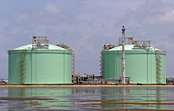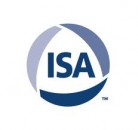Invensys Operations Management, a global provider of technology systems, software solutions and consulting services to the manufacturing and infrastructure operations industries, has completed a major control systems and technology upgrade at 12 Puerto Rico Electric Power Authority sites. With 5,839 MW of generating capacity, PREPA is one of the largest public utilities in the United States and the sole provider of electricity for 1.5 million customers in Puerto Rico.
Under the terms of an agreement signed in 2010, Invensys supplied its Foxboro® I/A Series® distributed control system, including its new Foxboro Control Software solution, to help PREPA diversify its production capabilities and become more nimble as it begins to add renewable energy to its power mix. Invensys also provided field service and start-up support, as well as design, testing and implementation services, including access to its Power Center of Excellence in Foxboro, Mass.
“We recently initiated a long-term strategy to expand the use of natural gas and renewable fuels at our generating plants, which required modern systems and technology,” said Jose Mulero, chief engineer, Puerto Rico Electric Power Authority. “Invensys Operations Management’s Foxboro I/A Series control technology, particularly its Foxboro Control Software, gives us the flexibility we needed to complete dual fuel conversion at all our targeted units, and we can do it sooner and with fewer costs. Because of the open nature of the technology, Foxboro solutions will help us provide reliable, cleaner energy in a safe, responsible and sustainable manner, as well as meet our long-term strategic objectives and comply with future regulations.”
“Our Foxboro DCS and Control Software offerings perfectly illustrate our commitment to innovation and open technology,” said Gary Freburger, president of Invensys Operations Management’s systems business. “Power companies are facing new, ever-more complicated challenges, even as their equipment and workforce continue to age. Instead of continuing to make like-for-like replacements or undertaking a major end-of-life installation in an attempt to meet these challenges, many of our customers, like PREPA, are choosing to modernize their existing systems. That can be the most cost-effective transition to improving real-time plant efficiencies and profitability. We are pleased to serve as PREPA’s trusted partner and excited about the value we are able to deliver to them and their customers.”
Zoom Kobe Venomenon VI 6

 Case Study by Yokogawa: Natural gas is Thailand’s primary fuel source and is absolutely essential to the country’s industries, particularly the power sector: two third’s of the country’s electricity is generated at gas-fired power plants. Much of Thailand’s natural gas comes from gas fields in the Gulf of Thailand. It is transported throughout the country via a network of offshore and onshore pipelines built by the national gas and oil company, PTT Public Company Limited (PTT PCL). In 2005, due to economic growth and the resulting shortfall in the supply of natural gas, the country’s National Energy Policy Board resolved to begin importing LNG.
Case Study by Yokogawa: Natural gas is Thailand’s primary fuel source and is absolutely essential to the country’s industries, particularly the power sector: two third’s of the country’s electricity is generated at gas-fired power plants. Much of Thailand’s natural gas comes from gas fields in the Gulf of Thailand. It is transported throughout the country via a network of offshore and onshore pipelines built by the national gas and oil company, PTT Public Company Limited (PTT PCL). In 2005, due to economic growth and the resulting shortfall in the supply of natural gas, the country’s National Energy Policy Board resolved to begin importing LNG. The International Society of Automation (ISA) announces that it has produced a new book that explains the concepts and terminology of advanced control, and highlights the advanced control tools and techniques most widely and effectively applied in the process industry today.
The International Society of Automation (ISA) announces that it has produced a new book that explains the concepts and terminology of advanced control, and highlights the advanced control tools and techniques most widely and effectively applied in the process industry today.